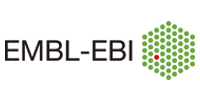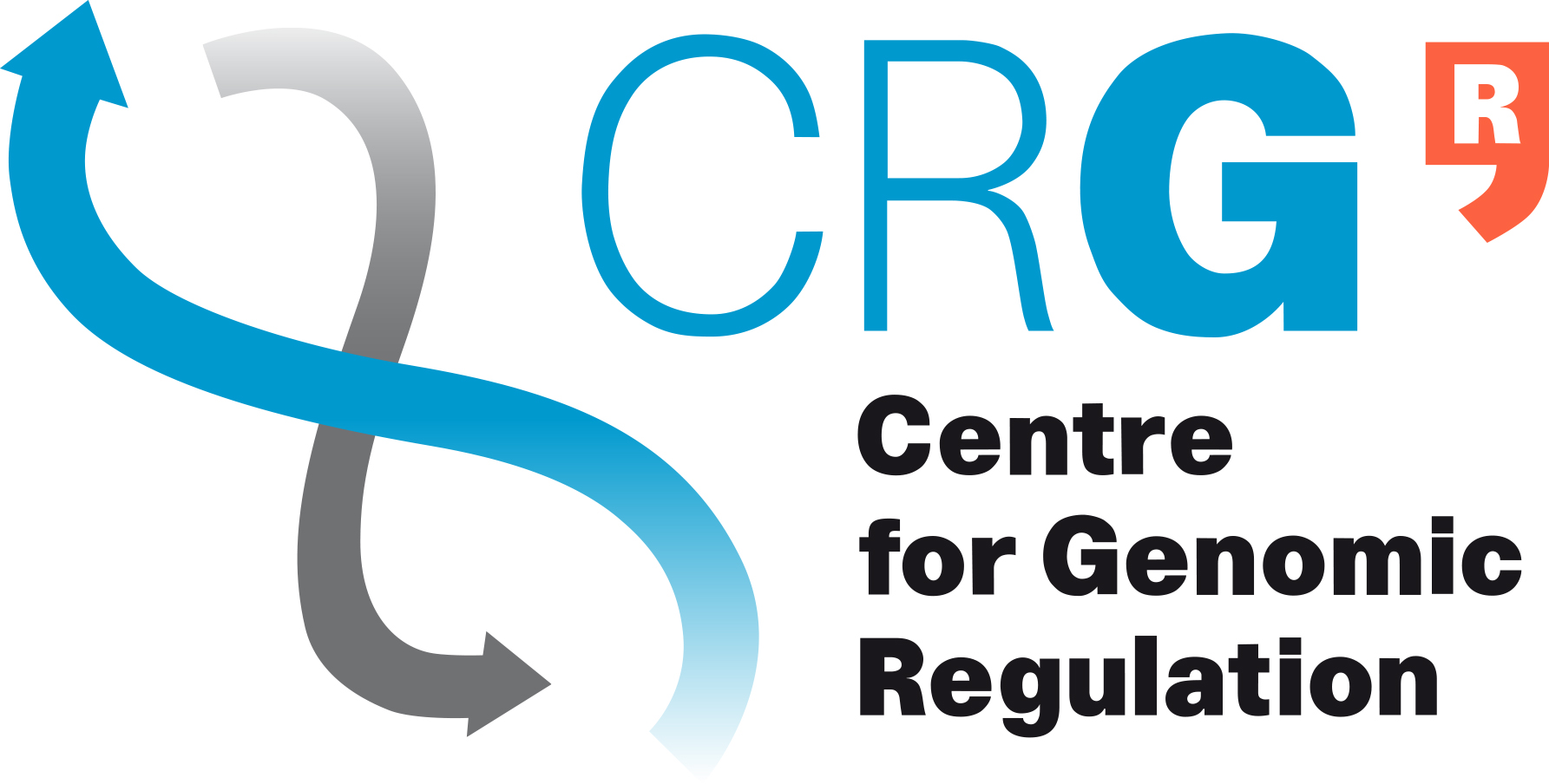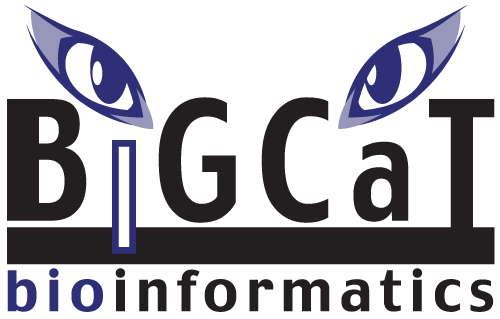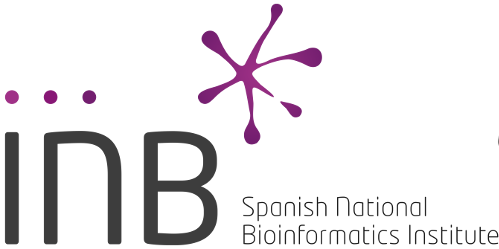Search results
-
tutorials
ProteomicsML
Bioinformatics Online course Mass spectrometry data bioinformatics community platform deep learning detectability educational platform fragmentation ion mobility …
-
Fundamentals of peptide and protein mass spectrometry
Proteomics Mass spectrometry Peptide Protein Mass Spectrometry
-
Interpretation and automated analysis of proteomic data
Proteomics Proteomic data analysis Data analysis
-
Sample prep for Proteomics
Sample collections Proteomics
-
Quantative Methods in Proteomics
Proteomics
-
Tutorial
Proteomics - Peptide and Protein ID using SearchGUI and PeptideShaker

-
Tutorial
Proteomics - Secretome Prediction

-
Tutorial
Proteomics - Peptide and Protein Quantification via Stable Isotope Labelling (SIL)

-
Tutorial
Proteomics - Peptide and Protein ID using OpenMS tools

-
Recorded webinar
Understanding proteomes
Proteins
-
slides, R Shiny application
Proteomics Data Analysis (PDA)
 •• intermediateProteomics proteomics quantitative proteomics
•• intermediateProteomics proteomics quantitative proteomics -
tutorial
compareMS2 tutorial
• beginnerPhylogenetics Proteomics -
Recorded webinar
UniProt for proteomics scientists
Proteomics
-
Tutorial
Proteomics - Metaproteomics tutorial

-
Introduction to Computational Proteomics

-
slides, scripts
Bioinformatics for Proteomics
 • beginnerProteomics
• beginnerProteomics -
WEBINAR: Getting started with proteomics
Bioinformatics Proteomics Mass spectrometry
-
e-learning
Multiomics data analysis using MultiGSEA
 • beginnerProteomics metabolomics multi-omics proteomics transcriptomics
• beginnerProteomics metabolomics multi-omics proteomics transcriptomics -
Documentation, Exercise, Handout, Scripts
IBIP19 - Integrative Biological Interpretation using Proteomics (2019)
•• intermediateProteomics -
Advanced analysis of quantitative proteomics data using R

-
e-learning
Proteomics: An introduction to EMBL-EBI resources
Proteomics Proteomics experiment Proteomes Introduction
-
Course materials
Proteomics bioinformatics 2024

-
Course materials
Proteomics bioinformatics

-
Recorded webinar
PRIDE database: Proteomics data submission, access and visualisation
Proteomics experiment
-
e-learning
PRIDE: Quick tour
Proteomics experiment Protein modifications Proteomics identifications ProteomeXchange Peptide identifications Post-translational modifications PTMs
-
Documentation, Exercise, Handout, Scripts
PDA18 - Proteomics Data Analysis (2018)
•• intermediateProteomics Biological databases Mass spectrometry data -
Documentation, Exercise, Handout, Scripts
PDA19 - Proteomics Data Analysis (2019)
•• intermediateProteomics Biological databases Mass spectrometry data -
e-learning
Single Cell Proteomics data analysis with bioconductor-scp
 • beginnerProteomics
• beginnerProteomics -
e-learning
Label-free data analysis using MaxQuant
 • beginnerProteomics DDA label-free
• beginnerProteomics DDA label-free -
e-learning
Detection and quantitation of N-termini (degradomics) via N-TAILS
 •• intermediateProteomics
•• intermediateProteomics
-

proteomicsML
ProteomicsML provides ready-made datasets for machine learning models accompanied by tutorials on how to work with even the most complex data types in the field of proteomics. The resource is set up to evolve together with the field, and we welcome everyone to contribute to the project by adding...
1 training materialproteomicsML https://proteomicsml.org/ https://tess.elixir-europe.org/content_providers/proteomicsml ProteomicsML provides ready-made datasets for machine learning models accompanied by tutorials on how to work with even the most complex data types in the field of proteomics. The resource is set up to evolve together with the field, and we welcome everyone to contribute to the project by adding new datasets and accompanying notebooks. ProteomicsML was set up as a joint effort of SDU, CompOmics, LUMC, PeptideAtlas, NIST, PRIDE, and MSAID. We believe that ProteomicsML is solid step forward for the field towards more open and reproducible science! /system/content_providers/images/000/000/676/original/proteomicsml-logo.png?1686658675 -

Proteomics Academy
EuPA Educational Committee
The EuPA Educational Committee supports educational initiatives in proteomics. Our aim is to make proteomics techniques affordable to all. We designed this website to provide the scientific community with free and open educational material.
EuBICThe European...
4 training materials0 events (1 past event)Proteomics Academy http://www.proteomics-academy.org/ https://tess.elixir-europe.org/content_providers/proteomics-academy EuPA Educational Committee The EuPA Educational Committee supports educational initiatives in proteomics. Our aim is to make proteomics techniques affordable to all. We designed this website to provide the scientific community with free and open educational material. EuBIC The European Bioinformatics Community (EuBIC) is a EuPA initiative for user-oriented bioinformatics. Our aim is to improve bioinformatics through the set-up of community driven dynamics improving the funding, publication, and work in user-oriented bioinformatics. In order to better disseminate bioinformatics among the scientific community, we also distribute educational material freely through this website, organize teaching, and a yearly conference. We function on a spontaneous voluntary basis, anyone is free to join, just contact us to stay tuned on the latest events! The Proteomics Academy is a joint effort of the European Proteomics Association (EuPA) educational committee and the European Bioinformatics Community (EuBIC) initiative. Our aim is to foster interaction between scientists interested in proteomics in an open, constructive, and collaborative way. We will be happy to answer your questions, receive your suggestions, and we welcome anyone wanting to join this community effort! /system/content_providers/images/000/000/064/original/97d05c_c3fb133973c34e318b81d122091dd238.png?1484056294 -

Babraham Institute Bioinformatics Group
The Babraham Institute Bioinformatics Groupwprovides bioinformatics services
to the 30 research groups which form the institute as well as providing an
external commercial consultancy service. The group...0 events (6 past events)Babraham Institute Bioinformatics Group https://www.bioinformatics.babraham.ac.uk https://tess.elixir-europe.org/content_providers/babraham-institute-bioinformatics-group The Babraham Institute Bioinformatics Groupwprovides bioinformatics services to the 30 research groups which form the institute as well as providing an external commercial consultancy service. The group has experience in a wide variety of areas of bioinformatics including genomics, proteomics, statistics and microarrays as well as having extensive experience of custom software development. /system/content_providers/images/000/000/105/original/babraham_bioinformatics.gif?1541131206 -

Centre for Genomic Regulation (CRG)
The CRG is an international biomedical research institute of excellence whose mission is to discover and advance knowledge for the benefit of society, public health and economic prosperity.
5 training materials0 events (2 past events)Centre for Genomic Regulation (CRG) https://www.crg.eu https://tess.elixir-europe.org/content_providers/centre-for-genomic-regulation-crg The CRG is an international biomedical research institute of excellence whose mission is to discover and advance knowledge for the benefit of society, public health and economic prosperity. /system/content_providers/images/000/000/647/original/LOGOs-CRG-ENG_2014.jpg?1659436926 -

Novo Nordisk Foundation Center for Protein Research
Novo Nordisk Foundation Center for Protein Research was established in 2007 at the Faculty of Health and Medical Sciences, University of Copenhagen, to promote basic and applied discovery research on human proteins of medical relevance.
The...
3 training materialsNovo Nordisk Foundation Center for Protein Research http://www.cpr.ku.dk/ https://tess.elixir-europe.org/content_providers/novo-nordisk-foundation-center-for-protein-research Novo Nordisk Foundation Center for Protein Research was established in 2007 at the [Faculty of Health and Medical Sciences](http://healthsciences.ku.dk/), [University of Copenhagen](http://www.ku.dk/), to promote basic and applied discovery research on human proteins of medical relevance. The establishment of the center was made possible by a generous donation of 600 million DKK (~113 MUSD) from the [Novo Nordisk Foundation](http://www.novonordiskfonden.dk/en) as well as through significant contributions from the University of Copenhagen for the renovation of the center facilities. In the beginning of 2015 the Novo Nordisk Foundation donated additional 180 million DKK for the next funding period. /system/content_providers/images/000/000/088/original/cpr.png?1520154812 -

Department of Bioinformatics - BiGCaT, Maastricht University
The department of Bioinformatics-BiGCaT is part of NUTRIM the school of Nutrition and Translational Research in Metabolism at Maastricht University, the Netherlands. It was founded in 2001 by Prof. dr. Chris Evelo aiming at employing bioinformatics approaches in systems biology to integrate...
8 training materials0 events (1 past event)Department of Bioinformatics - BiGCaT, Maastricht University https://www.bigcat.unimaas.nl/ https://tess.elixir-europe.org/content_providers/department-of-bioinformatics-bigcat-maastricht-university The department of Bioinformatics-BiGCaT is part of NUTRIM the school of Nutrition and Translational Research in Metabolism at Maastricht University, the Netherlands. It was founded in 2001 by Prof. dr. Chris Evelo aiming at employing bioinformatics approaches in systems biology to integrate experimental data and data with current knowledge. Integrative Systems Biology is being developed and applied in various research fields. The department has four core research areas; 1) Metabolic diseases, 2) Micronutrients, 3) Toxicity and risk Assessment and 4) Rare diseases. Within these areas different types of data, like transcriptomics, proteomics, metabolomics and (epi)genomics data, are collected , integrated and combined with existing knowledge /system/content_providers/images/000/000/093/original/logo_05_72dpi.gif?1528366508 -

ELIXIR Hungary
The Hungarian ELIXIR Node will include twelve different Hungarian universities and research institutes. The participating institutes represent five major scientific focus:
- Human genomics
- Proteomics
- Agricultural genomics
- Veterinary sciences and Ecology.
The Node has not established a...
0 events (2 past events)ELIXIR Hungary http://elixir-hungary.org/ https://tess.elixir-europe.org/content_providers/elixir-hungary The Hungarian ELIXIR Node will include twelve different Hungarian universities and research institutes. The participating institutes represent five major scientific focus: * Human genomics * Proteomics * Agricultural genomics * Veterinary sciences and Ecology. The Node has not established a Service Delivery Plan yet, but it can be anticipated that: * Protein databases (e.g. IUPred, ANCHOR, UniTmp) * Biomarker assesment portals (e.g. G-2-O, Kaplan-Meier Plotter) * Data depositories (e.g. Hungarian Oncogenome Portal) and * Virtual research environments (e.g. Kooplex) will be part of it. Joining ELIXIR, Hungary has the opportunity to strengthen collaboration among its diverse and scattered bioinformatics community. With the coordination of the resources at national level, the aforementioned services and tools will be more visible to the international research community. This goes hand in hand with the development of up to date bioinformatics courses in the education and training field. /system/content_providers/images/000/000/107/original/elixir-hungary.png?1542963208 -

UCLouvain Bioinformatics Platform
The platform's goak is to collaborate throughput the scientific community at the UCLouvain and offer technical and methodological bioinformatics support, including, among others:
support the bioinformatics aspects of grant proposals and experimental designs
high throughput omics data analysis...1 training material0 events (2 past events)UCLouvain Bioinformatics Platform https://uclouvain.be/en/research/bioinfo https://tess.elixir-europe.org/content_providers/uclouvain-bioinformatics-platform The platform's goak is to collaborate throughput the scientific community at the UCLouvain and offer technical and methodological bioinformatics support, including, among others: support the bioinformatics aspects of grant proposals and experimental designs high throughput omics data analysis such as genomics, epigenetics and transcriptomics (RNASeq or microarrays) or mass spectrometry based proteomics and metabolomics help in utilisation of public databases (TCGA, Gtex, CCLE, ENCODE, ...) development of dedicated algorithms and software. The platform also organises workshops in data analysis and bioinformatics to introduce particpants to widely used languages such as R, and get them started in the analysis of their own omics data. For additional information and any collaboration requests, please contact us by email at contact-cbio@uclouvain.be describing your needs, including, if data is already available, the underlying technology and experimental design. Members Prof Laurent Gatto Mr Theo Killian Dr Axelle Loriot Contact: contact-cbio@uclouvain.be CBIO - de Duve Institute - UCLouvain Avenue Hippocrate, 75 - bte B1.74.10 1200 Brussels, Belgium -

INB: Spanish National Bioinformatics Institute
The Spanish National Bioinformatics Institute (‘Instituto Nacional de Bioinformática’ in Spanish, or short INB), founded in 2003 following the decentralized model of nodes of the Swiss Institute of Bioinformatics (SIB), is the bioinformatics technology platform of the Carlos III Health Institute...
0 events (14 past events)INB: Spanish National Bioinformatics Institute https://inb-elixir.es https://tess.elixir-europe.org/content_providers/inb-spanish-national-bioinformatics-institute The Spanish National Bioinformatics Institute (‘Instituto Nacional de Bioinformática’ in Spanish, or short INB), founded in 2003 following the decentralized model of nodes of the Swiss Institute of Bioinformatics (SIB), is the bioinformatics technology platform of the Carlos III Health Institute (‘Instituto de Salud Carlos III‘ or ISCIII) since January 2018. The INB has increased the participant nodes to 19 research groups distributed across 13 institutions in Spain. The two main overarching objectives are maintaining and increasing the alignment of the INB with ELIXIR (European Life Science Infrastructure for Biological Information) looking for deeper synergies, while increasing the translational capacity of the INB towards the Spanish National Health System (SNS). The INB serves in the coordination, integration and development of Spanish bioinformatics resources in projects in the areas of genomics, proteomics and translational medicine. It has contributed to the creation of a consistent computational infrastructure in the area of bioinformatics, participated in national and international genome projects, and trained bioinformatics users and developers. The INB is in a strategic position as an interface between developments at the national and international level by research centers, initiatives such as the Global Alliance for Genomics and Health (GA4GH), and organizations such as ELIXIR, and bioinformatic groups directly related to clinical practice. **Spain is member of ELIXIR since 2015, with the INB as the Spanish national node**. Within ELIXIR, the INB is responsible for the bioinformatics infrastructure offered by Spain, and therefore, should guarantee its alignment to the strategic areas put forward by ELIXIR. /system/content_providers/images/000/000/110/original/logoINB.png?1550073283 -

Biomedical Sciences Research Center "Alexander Fleming"
The Biomedical Sciences Research Center "Alexander Fleming" is a non-profit research organisation based in Vari, Athens, Greece.
Since the beginning of its operations in 1998, the Center develops basic as well as translational and applied research programs at the cutting edge of modern...
1 training materialBiomedical Sciences Research Center "Alexander Fleming" https://www.fleming.gr/ https://tess.elixir-europe.org/content_providers/biomedical-sciences-research-center-alexander-fleming The Biomedical Sciences Research Center "Alexander Fleming" is a non-profit research organisation based in Vari, Athens, Greece. Since the beginning of its operations in 1998, the Center develops basic as well as translational and applied research programs at the cutting edge of modern biomedical sciences. Currently, the Center hosts 14 research groups distributed in 4 Institutes (Immunology, Molecular Oncology, Molecular Biology and Genetics, Cellular & Developmental Biology). Over the short period since its establishment, BSRC "Alexander Fleming" has gained extensive visibility in the European science arena. Fleming researchers have established transgenic animal models for rheumatoid arthritis, inflammatory bowel disease and multiple sclerosis and these models have served as a basis for multiple collaborations with the international biopharmaceutical industry in the evaluation of novel therapeutic compounds, or as tools for collaborative R&D. The Center is equipped with state-of-the-art Core Units which include: an Expression Profiling Facility, a Flow Cytometry Facility, a Protein Chemistry Lab, a Transgenics and gene targeting Unit, and a BioIT Unit, all of which serve internal collaborations, as well as external partners in academia and industry. The Center also runs an Innovation and Enterprise Unit that facilitates the protection and exploitation of the Center’s research and technologies. Fleming operates its own Animal House, which can house up to 15,000 mice, and has its own complete mouse histopathology unit. Fleming’s Animal house (certified with ISO 9001) provides husbandry of animals and services to the biomedical research community since 2001. It covers an area of approximately 600 m2 within the Center and is equipped with highly automated systems that provide the best possible conditions for mouse reproduction and maintenance. Its main activity is the reproduction and maintenance of mice stocks either of inbred strains or genetically engineered mice, such as transgenic and knockout mouse lines, as well as chemically induced mutants developed by Fleming researchers. The Animal House has a capacity to house more than 18,000 mice and is currently the largest Mouse Unit in Greece in terms of number and variety of mice. The Facility became a full member of EMMA in 2009. Main areas of research: Functional genomics and proteomics; Molecular and cellular immunology; Animal models of human disease; Transcriptional and post-transcriptional mechanisms of gene regulation; DNA repair; Stem Cell differentiation; Epigenetics; Learning and memory; ECM biology. Fields of excellence: Molecular mechanisms of disease (inflammation, cancer, metabolic syndrome, CNS disorders). /system/content_providers/images/000/000/051/original/logo.png?1469458221
